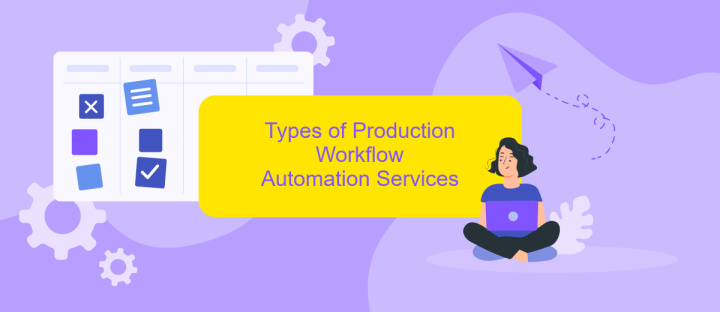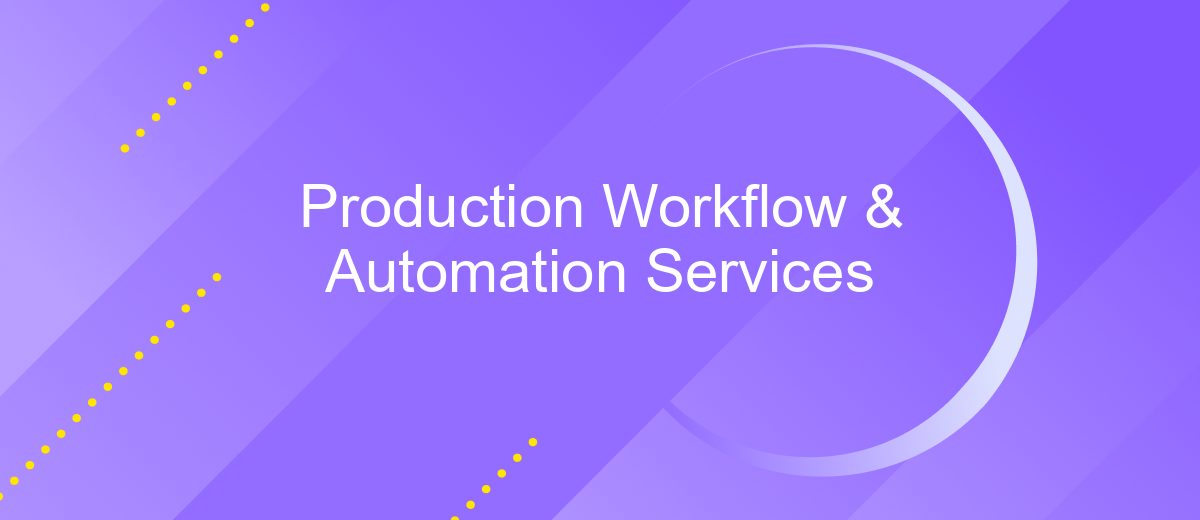Production Workflow & Automation Services
In today's fast-paced business environment, optimizing production workflows and implementing automation services are essential for maintaining competitive advantage. Streamlined processes and automated systems not only enhance efficiency but also reduce operational costs and minimize errors. This article explores the key benefits and strategies for integrating advanced production workflow and automation solutions to drive productivity and innovation in your organization.
Introduction to Production Workflow & Automation Services
In today's fast-paced business environment, optimizing production workflows and leveraging automation services are critical for maintaining competitiveness. Streamlining processes not only enhances efficiency but also reduces operational costs and minimizes human error. By integrating advanced automation tools, businesses can achieve seamless and error-free operations.
- Enhanced efficiency through streamlined processes
- Reduction in operational costs
- Minimization of human error
- Seamless integration with existing systems
One such tool is ApiX-Drive, which simplifies the integration of various applications and services. By automating data transfer and synchronization, ApiX-Drive ensures that your systems are always up-to-date and functioning smoothly. This allows businesses to focus on core activities while the automation services handle routine tasks, leading to increased productivity and better resource allocation.
Benefits of Production Workflow Automation

Implementing production workflow automation significantly enhances operational efficiency by streamlining repetitive tasks and reducing the likelihood of human error. This leads to faster production cycles, allowing businesses to meet tight deadlines and maintain high-quality standards. Automation also frees up valuable human resources, enabling employees to focus on more strategic and creative tasks that drive innovation and growth.
Another major benefit of production workflow automation is the seamless integration of various systems and processes. Tools like ApiX-Drive facilitate the connection of different applications and services, ensuring smooth data flow and real-time updates across the production pipeline. This not only improves collaboration but also provides better visibility into the production process, enabling managers to make informed decisions quickly. Ultimately, automation leads to cost savings, higher productivity, and a more agile production environment.
Types of Production Workflow Automation Services

Production workflow automation services streamline processes, reduce manual intervention, and enhance productivity. These services can be categorized into several types, each designed to address specific needs within a production environment.
- Task Automation: Automates repetitive tasks such as data entry, scheduling, and reporting, freeing up valuable human resources for more complex activities.
- Integration Services: Tools like ApiX-Drive facilitate seamless integration between various software applications, ensuring smooth data flow and operational consistency.
- Process Automation: Enhances the efficiency of entire workflows by automating sequences of tasks and processes, often using advanced technologies like AI and machine learning.
- Monitoring and Reporting: Automates the collection and analysis of data to provide real-time insights and generate reports, helping in proactive decision-making.
Each type of automation service plays a crucial role in optimizing production workflows. By leveraging these services, businesses can achieve greater efficiency, reduce errors, and ultimately drive better outcomes. Whether it's through task automation, integration services like ApiX-Drive, or advanced process automation, the impact on productivity is significant.
Implementation and Management of Production Workflow Automation

Implementing production workflow automation involves a systematic approach to streamline and optimize various processes within a manufacturing environment. The primary goal is to enhance efficiency, reduce errors, and improve overall productivity by leveraging advanced technologies and software solutions.
Effective management of workflow automation requires careful planning and a deep understanding of the existing processes. This includes identifying bottlenecks, redundant tasks, and areas that can benefit from automation. Integration with existing systems is crucial to ensure seamless operation and data flow across different departments.
- Analyze and map out current workflow processes.
- Identify tasks and processes suitable for automation.
- Select appropriate automation tools and software, such as ApiX-Drive for integrating various applications.
- Develop and test automated workflows.
- Monitor and optimize automated processes continuously.
Utilizing services like ApiX-Drive can significantly simplify the integration process by allowing businesses to connect different applications and systems effortlessly. This not only saves time but also ensures that data is accurately transferred and utilized across all platforms, leading to a more cohesive and efficient production workflow.


Conclusion and Future Trends in Production Workflow Automation
In conclusion, the adoption of production workflow automation is revolutionizing how businesses operate, driving efficiency, and reducing operational costs. By automating repetitive tasks and integrating various systems, companies can achieve higher productivity and better resource management. Tools like ApiX-Drive play a crucial role in this transformation by offering seamless integration solutions that connect disparate systems, enabling smooth data flow and enhanced process coordination.
Looking ahead, the future of production workflow automation is promising, with advancements in artificial intelligence and machine learning set to further optimize processes. Predictive analytics and real-time data monitoring will enable proactive decision-making, minimizing downtime and maximizing output. Additionally, the increasing adoption of IoT devices will provide deeper insights into production environments, fostering smarter and more responsive workflows. Embracing these trends will be essential for businesses aiming to stay competitive and innovative in the ever-evolving industrial landscape.
FAQ
What is production workflow automation?
How can automation services benefit my production workflow?
What types of tasks can be automated in a production workflow?
How do I integrate different software systems in my production workflow?
Is it difficult to set up automation for my production workflow?
Routine tasks take a lot of time from employees? Do they burn out, do not have enough working day for the main duties and important things? Do you understand that the only way out of this situation in modern realities is automation? Try Apix-Drive for free and make sure that the online connector in 5 minutes of setting up integration will remove a significant part of the routine from your life and free up time for you and your employees.

